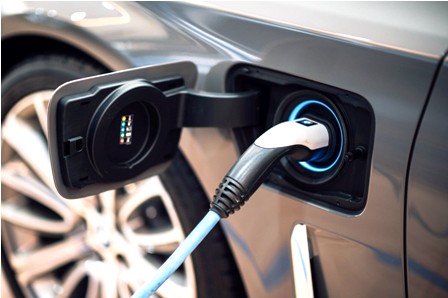EUGENE HERBERT
The move toward electric vehicles (EV) is well underway internationally. In recent years, major inroads have been made globally.
In South Africa, Nigeria and a number of African countries, forward-thinking fleets are already investigating how to make the transition. The majority of the focus, however, is on EVs.
But there are other forms of alternative power – could any of these be better options for fleets?
There are at least five alternative fuel forms. Choosing the best one for a fleet depends on the specific fleet and other factors. These include efficiency, sustainability, operational needs, current fuel expense, driver experience or available training, infrastructure, budget and even legislation affecting each source.
The six alternative fuel types include:
Electricity: Vehicles can be charged at the office, public areas or overnight at home. It is a highly efficient source and easier to access because infrastructure is rapidly advancing. South Africa, however, has an aging power infrastructure that is unreliable. Electricity can be used in combination with gas and plug-in hybrid electric vehicles (PHEVs) as well. Currently, in South Africa, the purchase price of full EVs is prohibitive to many.
Hydrogen: This powers fuel cell electric vehicles (FCEVs). The advantages include accessibility, efficiency, ability to quickly refill and minimal emissions. Conversely, it contains less energy content than other power sources with limited uptake. Developing fuelling infrastructure is difficult and expensive. South Africa is posited as an ideal location for developing hydrogen infrastructure because of access to resources but, thus far, little development has occurred.
Biodiesel / bioethanol: This is a by-product of biodegradable non-toxic substances such as vegetable oil. Either a pure form or diesel mixture can be used. It is not the cleanest fuel source available but is better than petrol or diesel. Currently, biodiesel only accounts for 2.5% of South Africa’s liquid fuel market. It is also more expensive than other options but cheaper than petrol and diesel. There is a strategy in place by the government to increase usage to 4.5%.
LPG/CNG and LNG: LPG/CNG has a comparable fuel economy to current fuel sources and is the third most commonly used fuel source worldwide. LNG has the potential to power medium to heavy commercial vehicles even long-distance. Currently, further development of this fuel source is limited because of the time it takes for the natural gas to form in comparison to the rapid rate at which it is burnt when used for commercial purposes. In South Africa availability and access is limited and only provides a small saving in comparison to fuel. Conversions on current vehicles are possible though.
Air: Air alone cannot be used as a fuel source which is why its development is not as far along as other sources. Compressed air can power a vehicle only up to approximately 50 to 60km/h, after that another power source, normally fuel, needs to kick in.
The technology is in early development still. Benefits include no emissions but early research reveals it is less efficient than EVs. South African development has a way to come as it is only starting to emerge in more developed nations.
There is no limit of alternative fuel sources being researched and developed. In the second part of this series, access tips for choosing the best power source for your vehicle as you transition from traditional fuel sources. Each is at different stages of development and has their own benefits and disadvantages.
Eugene Herbert is the CEO of MasterDrive based in South Africa
©Copyright MOTORING WORLD INTERNATIONAL. All rights reserved. Materials, photographs, illustrations and other digital content on this website, may not be reproduced, published, broadcast, rewritten or redistributed in whole or in part without prior written permission from Motoring World International
Contact: info@motoringworldng.com


